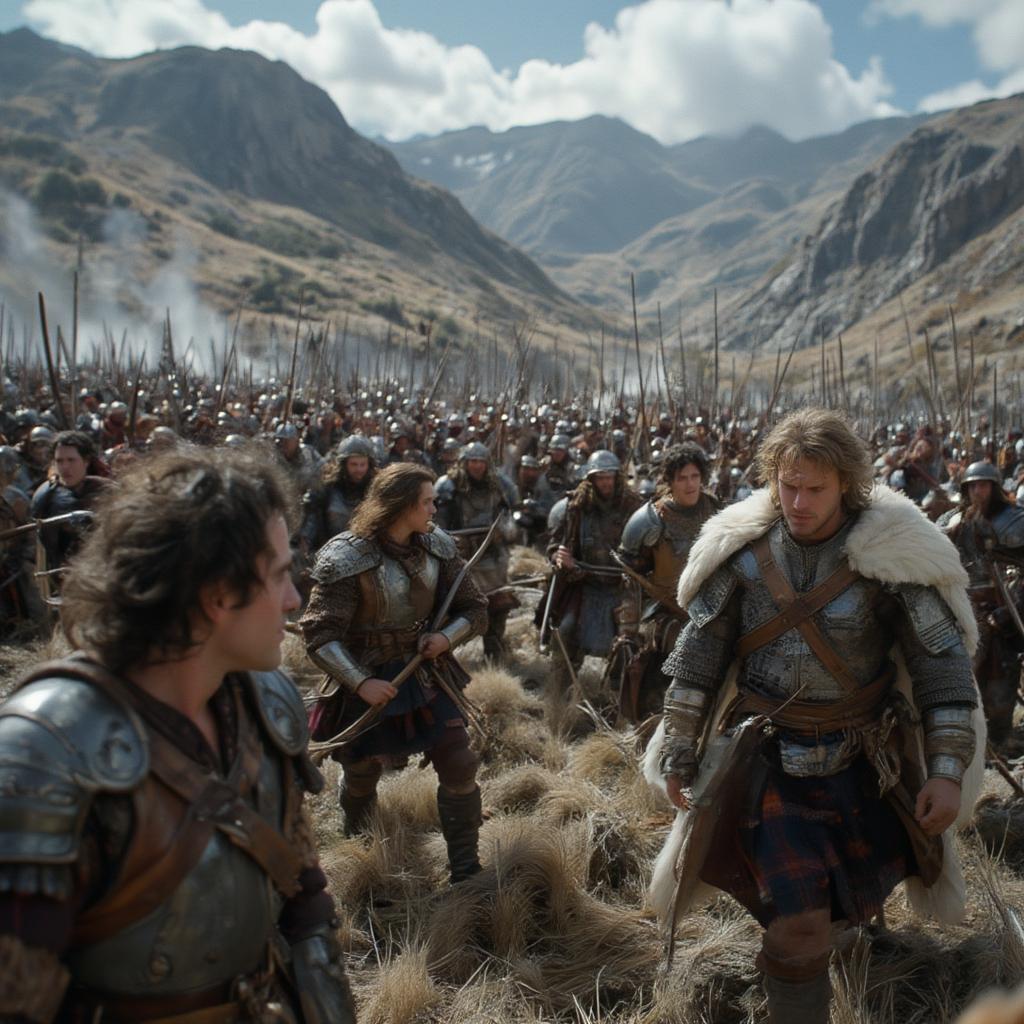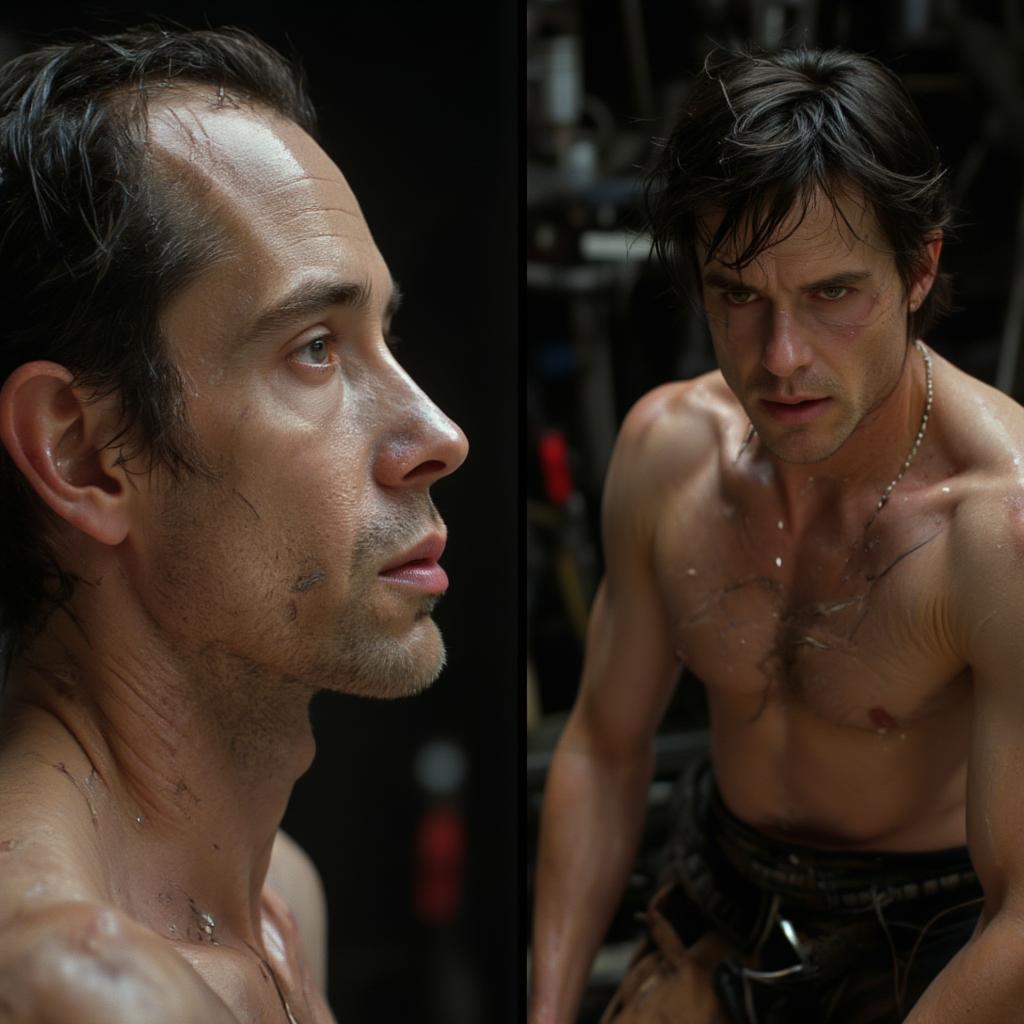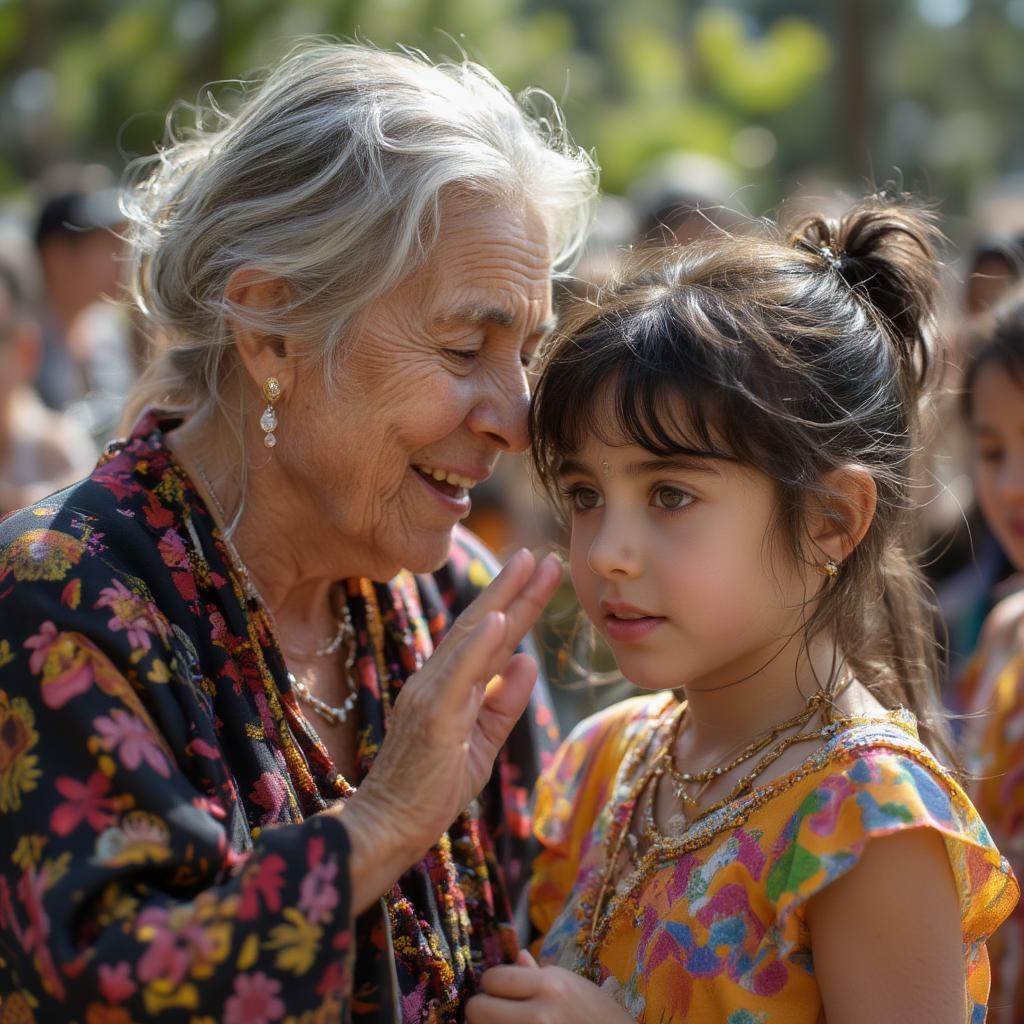Unveiling the Legend: Exploring the Enduring Appeal of Braveheart

The echoes of bagpipes and the clash of steel still resonate, long after the final battle cry faded. Braveheart, a film that transcends mere historical drama, continues to captivate audiences with its tale of rebellion, love, and ultimate sacrifice. But what is it about this story of William Wallace that continues to hold such power? Is it the raw emotion, the sweeping landscapes, or the underlying themes of freedom and justice that resonate across generations? Let’s delve deeper into the heart of Braveheart and explore its lasting impact.
The Historical Tapestry of Braveheart: Fact vs. Fiction
While Braveheart is based on the life of William Wallace, a Scottish warrior who led his people against English rule in the late 13th century, it’s important to acknowledge the film’s liberties with historical accuracy. The real Wallace, though a national hero, was not the romanticized figure we see on screen. However, the film’s dramatization highlights universal themes that connect with audiences. The core narrative of a man fighting for freedom, even against seemingly insurmountable odds, provides the driving force behind the film’s appeal. This theme has also been explored in similar films, where ordinary people stand up against oppression, like in karan arjun.
What Are the Key Themes Driving Braveheart‘s Success?
- The Struggle for Freedom: At its heart, Braveheart is a tale of a nation striving for self-determination, a universal human desire that transcends time and place. Wallace’s fight is not just about Scotland; it’s about any people yearning for independence.
- The Power of Individual Courage: Wallace’s willingness to defy tyranny, even when faced with overwhelming odds, is incredibly inspirational. His bravery becomes a beacon for others.
- Love and Loss: The love story between Wallace and Murron adds another layer of emotional depth. Her tragic death fuels his rage and determination, a common trope also evident in karan arjun.
- The Corruption of Power: The film portrays the English ruling class as cruel, manipulative, and oppressive, highlighting the dangers of unchecked authority. This theme is one that continues to be relevant in our modern world, allowing viewers to relate to the struggles presented.
Examining the Visual and Auditory Landscape of Braveheart
Braveheart‘s impact isn’t solely due to its story; the film is also a triumph of cinematic artistry. The breathtaking scenery of the Scottish Highlands, the stirring music by James Horner, and the realistic battle sequences all contribute to an immersive experience. These elements work together seamlessly to create a visceral and unforgettable viewing.
“Braveheart isn’t just a historical film; it’s a visceral experience. The combination of powerful visuals and evocative music makes it a cinematic masterpiece,” states Dr. Alistair MacLeod, a film historian.
- The Power of Cinematography: The sweeping shots of the Scottish landscape create a feeling of epic scale, enhancing the sense of the grand scope of the story.
- The Evocative Soundtrack: The musical score plays a crucial role in heightening the emotional impact of scenes. From the haunting melodies during quiet moments to the rousing themes during battles, the music enhances every scene.
- Realistic Battle Sequences: The realistic depiction of the battles, with their chaotic energy and visceral brutality, immerses the viewer in the heart of the conflict.
Why Does Braveheart Continue to Resonate Today?
Braveheart‘s enduring popularity is due to the universal themes it explores and the passionate delivery of its message. While it is a historical drama, the film transcends its historical context and becomes a powerful commentary on the importance of freedom, love, and courage in the face of oppression. These ideas are as important now as they were in the past.
Exploring the Characters and Their Motivations
Beyond the historical and cinematic aspects, Braveheart features compelling characters with clear motivations. William Wallace, with his unwavering dedication to his people, stands as an iconic figure of resistance, and the supporting cast enhances the narrative by adding complexity and depth to the story.
- William Wallace: A complex hero driven by personal tragedy and a deep love for his homeland. His journey from a peaceful farmer to a fierce warrior is truly captivating.
- Princess Isabella: Caught between her duty to her husband and her growing affection for Wallace, her character brings an emotional dilemma to the conflict.
- Robert the Bruce: A complex character whose initial hesitations give way to eventual heroism, highlighting the importance of making tough choices.
How Does Braveheart Compare to Other Historical Epics?
While other historical epics like Gladiator and Ben-Hur have their merits, Braveheart distinguishes itself with its focus on national identity and the visceral portrayal of the struggle for freedom. This distinction is due to its emphasis on national spirit, contrasting the usual themes of personal triumph in other epics. This gives it a sense of raw power, resonating with those who believe in a higher cause. Similar to the family dynamics seen in karan arjun, Braveheart uses these relationships to illustrate the values the characters hold.
“Braveheart stands out for its intense focus on the struggle for national independence, differentiating it from other historical dramas that often focus on personal glory or religious themes,” observes Dr. Fiona Campbell, an expert in historical film analysis.
- Focus on National Identity: Unlike films that focus on individuals, Braveheart emphasizes the collective identity of a people fighting for their sovereignty.
- Visceral Portrayal of Battle: The battle scenes in Braveheart are particularly brutal and realistic, conveying the true cost of war.
- Emphasis on Emotional Depth: The film intertwines personal stories of love and loss with the larger narrative of resistance, enhancing its emotional impact.
The Legacy of Braveheart
Braveheart‘s impact extends beyond the realm of cinema. It has influenced popular culture, inspired political movements, and continues to be a symbol of hope and resistance. Its portrayal of Wallace as a figure of resistance has become a powerful inspiration for those fighting against injustice.
Braveheart’s Influence on Popular Culture
- Inspiration for Rebellions: The film has resonated with various movements worldwide that seek self-determination and freedom.
- Iconic Symbolism: The image of Wallace as a warrior has become a recognizable symbol of resistance and courage.
- Lasting Cultural Impact: The film’s music, dialogue, and scenes have become part of popular culture, used in various contexts to evoke emotions of freedom and struggle.

Is Braveheart Historically Accurate?
While the film takes liberties with history, it remains a powerful and compelling story about the fight for freedom and the impact one individual can have on the world. The film does not follow history to a ‘T’, but its heart does connect with the core of history. The film’s dramatization is what resonates, rather than a detailed historical recreation. The spirit of the movie embodies the heart of its characters. The story, while a historical epic, has many themes that mirror other stories such as the familial bonds within karan arjun.
The Importance of Understanding the Film’s Core Message
Ultimately, the enduring power of Braveheart lies not in its historical accuracy but in its ability to connect with audiences on an emotional level. The themes of love, loss, courage, and the pursuit of freedom will always remain relevant, making Braveheart a timeless classic. The movie’s legacy is one that encourages people to fight for what they believe in and never give up, something that resonates across cultures and ages.
Conclusion: Braveheart‘s Lasting Resonance
Braveheart, more than just a historical drama, is a testament to the human spirit’s capacity for resilience, courage, and the unwavering pursuit of freedom. Its blend of historical events with compelling characters and powerful storytelling continues to captivate audiences around the world. The film’s resonance lies in the universal themes it portrays, not its literal historical accuracy. It’s a story that reminds us of the importance of fighting for what we believe in and never giving up on the dream of freedom.
FAQ
-
Is Braveheart a true story? While based on the life of William Wallace, the film takes significant creative liberties with historical events. The core narrative of Wallace leading a rebellion against English rule is accurate, but many details are fictionalized for dramatic effect.
-
Why is Braveheart so popular? The film resonates with audiences due to its universal themes of freedom, love, and courage. The epic scale, powerful acting, and emotional depth contribute to its enduring popularity. The film’s ability to touch on human emotion and experience gives it an advantage over other historical dramas.
-
What is the main theme of Braveheart? The central theme is the struggle for freedom and self-determination, emphasizing the courage required to fight against tyranny. This theme is further enhanced by narratives of love, loss, and the pursuit of justice.
-
How does Braveheart portray the English? The film portrays the English ruling class as cruel, manipulative, and oppressive, highlighting the dangers of unchecked power. However, this portrayal is not necessarily a historically accurate depiction of all English people.
-
What is the role of love in Braveheart? The love story between Wallace and Murron provides an emotional core to the story and fuels Wallace’s desire for revenge and ultimately leads him to fight for his homeland and the freedom of his people.
-
How does the music in Braveheart affect the viewing experience? The soundtrack by James Horner enhances the emotional impact of the scenes, from the haunting melodies during quiet moments to the rousing themes during battles. The music is crucial in creating a visceral and immersive experience for the viewer.
-
What are some other films similar to Braveheart? Films such as Gladiator, The Patriot, and Kingdom of Heaven explore similar themes of courage, rebellion, and the fight for freedom. However, Braveheart distinguishes itself with its focus on national identity and the intense portrayal of the struggle for independence, and similar themes can be seen in movies like karan arjun.
-
Does Braveheart accurately represent Scottish history? The film presents a romanticized version of Scottish history, and many historical details are either altered or fictionalized for dramatic effect. While the core narrative is rooted in history, the film shouldn’t be taken as a complete history lesson.




